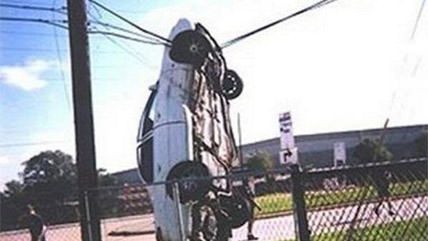UK Plans to Ban Using Google Glass While Driving


The benefits of versatile, hands-free technology promised by Google Glass may not be enjoyed by British drivers thanks to planned government regulations.
The gadget, which rests on the bridge of the nose and projects a visual display, will likely not hit the market in the U.K. until the spring of 2014. Nevertheless, lawmakers are already considering regulating when people can use the device.
Stuff, a British consumer technology magazine, was the first to break the news, reporting on an announcement made by a spokesperson for the Department for Transport:
We are aware of the impending rollout of Google Glass and are in discussion with the Police to ensure that individuals do not use this technology while driving. It is important that drivers give their full attention to the road when they are behind the wheel and do not behave in a way that stops them from observing what is happening on the road.
A range of offences and penalties already exist to tackle those drivers who do not pay proper attention to the road including careless driving which will become a fixed penalty offence later this year.
The Stuff article suggests that violations would fall under the 1988 Road Traffic Act. The penalty for using Google Glass while driving would likely be a £60 fine (roughly $90) and three points being added to the offender's license, which is the same punishment as using a cellphone while driving.
Will Findlater, a Stuff editor, bemoans the potential technological void that will be created by overregulation. The ban "closes the door on UK app developers' efforts to exploit the in-car possibilities of the device, as has already been seen with GlassTesla in the US."
Jeffrey Van Camp at Digital Trends also disagrees with the proposed ban,"Wearing Glass is not distracting," he insists. Van Camp elaborates, "It sits on your face, requires virtually no physical interaction, and doesn't block your vision." Van Camp also explained that using this wearable piece of technology could actually be beneficial, "Glassy drivers can see the weather ahead, answer a call, learn the time, or get turn-by-turn navigation directions without taking their eyes off the road for a second."
Legal restrictions on "glassing and driving" have already been proposed in the United States. CNet writes that politicians in both Delaware and West Virginia have written bills that, so far, have not gained enough support to take effect. Likewise, various individual businesses, ranging from bars to casinos, have already preemptively prohibited people from wearing Google Glass in their establishments.


Show Comments (19)